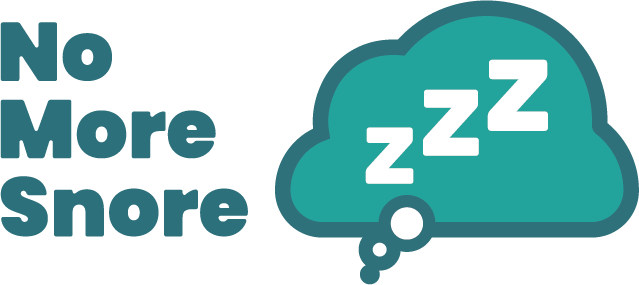Sleep plays a vital role in our overall well-being and health. However, many people are unaware of the impact that nasal breathing can have on the quality of their sleep. Nasal breathing, as opposed to mouth breathing, offers a plethora of benefits that can significantly improve your sleep and overall health. In this blog post, we will explore the importance of nasal breathing during sleep and uncover the various advantages it provides.
The Science Behind Nasal Breathing
Nasal breathing is the natural and optimal way to breathe, both during the day and while asleep. When we breathe through the nose, the air gets filtered, humidified, and warmed, creating an optimal environment for the respiratory system. The nasal passages also produce nitric oxide, a powerful vasodilator that helps improve blood circulation and oxygen delivery throughout the body.
The Impact on Sleep Quality
Improved Oxygenation: Nasal breathing ensures that the air you inhale is properly filtered and conditioned, leading to improved oxygenation. This can result in better sleep quality, increased energy levels, and enhanced cognitive function.
Reduced Snoring: Nasal breathing helps alleviate snoring, a common sleep-related issue that can disrupt your sleep and that of your partner. When you breathe through your nose, the airflow is smoother and quieter, reducing the likelihood of snoring.
Prevention of Sleep Apnea: Nasal breathing can also play a significant role in preventing sleep apnea, a serious sleep disorder characterized by interrupted breathing during sleep. By keeping the airway open and maintaining consistent airflow, nasal breathing can reduce the risk of sleep apnea episodes.
Unveiling the Impact of Nitrous Oxide on Sleep Patterns
Sleep is an essential aspect of our daily lives, playing a crucial role in maintaining our overall well-being. However, various factors can influence the quality and duration of our sleep. One such factor is the use of nitrous oxide, commonly known as laughing gas. In this blog, we will explore the effects of nitrous oxide on sleep, shedding light on its potential impact and providing valuable insights into the subject.
Understanding Nitrous Oxide:
Nitrous oxide (N2O) is a colorless, sweet-smelling gas that has been used for centuries in medical and recreational settings. It is commonly used as an anesthetic and analgesic agent in dentistry and surgery. Additionally, it is often employed recreationally for its euphoric and dissociative effects, making it popular in certain social settings.
How Nitrous Oxide Affects Sleep:
While nitrous oxide can induce a state of relaxation and altered perception, its impact on sleep has both short-term and long-term implications. Let’s delve into some of the key effects:
Disrupted Sleep Architecture: Nitrous oxide can disrupt the natural sleep architecture by affecting the different stages of sleep, including rapid eye movement (REM) and non-rapid eye movement (NREM) sleep. Users may experience fragmented sleep patterns, leading to a reduction in the overall quality and restorative properties of sleep.
Increased Sleep Onset Latency: Nitrous oxide can prolong the time it takes to fall asleep, commonly referred to as sleep onset latency. This delay may result from the altered neurotransmitter balance caused by the gas.
Altered REM Sleep: Nitrous oxide has been shown to reduce the duration of REM sleep, the stage associated with vivid dreams and cognitive processing. This reduction in REM sleep can impact memory consolidation, mood regulation, and overall cognitive function.
Daytime Sleepiness: Individuals who use nitrous oxide may experience increased daytime sleepiness due to the disruption in their sleep cycles. This can lead to reduced alertness, concentration difficulties, and impaired performance in daily activities.
Sleep-Related Breathing Disorders: In some cases, nitrous oxide can exacerbate sleep-related breathing disorders, such as sleep apnea. The gas’s respiratory-depressant effects can further compromise an individual’s breathing during sleep, potentially leading to complications and increased health risks.
Benefits of Nitrous Oxide Reduction
Improved Sleep Quality: Minimizing nitrous oxide exposure during sleep can help restore the natural sleep architecture, promoting deeper and more restful sleep. This, in turn, enhances cognitive functioning, emotional well-being, and overall vitality.
Enhanced Oxygenation: By reducing nitrous oxide levels, oxygen saturation during sleep can be optimized, ensuring adequate oxygen supply to vital organs and tissues. This can mitigate the risk of daytime fatigue, cognitive impairment, and cardiovascular complications.
Decreased Risk of Sleep Disorders: Reducing nitrous oxide exposure may reduce the incidence or severity of sleep-disordered breathing conditions, including sleep apnea. This can alleviate symptoms such as snoring, disrupted sleep, and excessive daytime sleepiness.
Implications and Considerations
Medical and Dental Procedures: It is important for healthcare providers to evaluate the necessity and duration of nitrous oxide administration during procedures. They should consider alternative sedation options to minimize exposure, especially for individuals who may be more vulnerable to the effects of nitrous oxide.
Sleep Environment: Creating a sleep-friendly environment is crucial for optimizing sleep quality. Ensuring good ventilation, using high-quality air filters, and reducing potential sources of nitrous oxide in the bedroom can be beneficial.
Consultation with Healthcare Professionals: Individuals experiencing sleep disturbances or concerned about the impact of nitrous oxide on their sleep health should consult with healthcare professionals. They can provide personalized guidance and recommendations based on individual circumstances.

